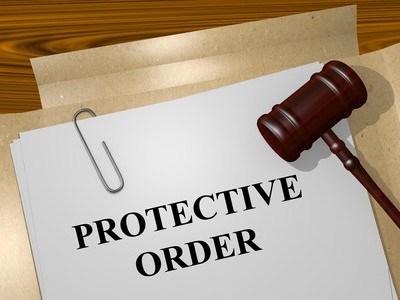 When domestic violence may be endangering anyone, these people can seek protective orders from the court to legally keep their abuser away from them. These orders, which are also known as restraining orders, no contact orders and injunctions, may be temporary or permanent, and the specific requirements of these orders can differ from case to case.
When domestic violence may be endangering anyone, these people can seek protective orders from the court to legally keep their abuser away from them. These orders, which are also known as restraining orders, no contact orders and injunctions, may be temporary or permanent, and the specific requirements of these orders can differ from case to case.
In the event that you or your child’s safety is at risk and you need a protective order, you can turn to the Denver family law attorney at Goldman Law, LLC to help:
- Get this order in place as soon as possible
- Get this order to detail all points of “no contact” that you need in place
- Renew or extend these orders when they may be about to expire
- Help you with your other family law needs, including divorce or custody cases, once restraining orders to protect you are in place.
What Protective Orders Can Do: The Details of Protective Orders
When a court has agreed that protective orders need to be issued to keep an alleged abuser away from the people (s)he may be hurting, these orders can specifically require that:
- The abuser does not contact the victim(s) in any way as long as the order is in place
- The abuser moves out of the family home and does not return while the order is effective.
- The abuser does not come within a certain distance of a victim’s work and/or school.
- The abuser relinquishes certain visitation and parenting time rights (s)he may have.
In some cases, protective orders may also specifically order the alleged abuser to attend anger management courses and/or counseling while staying away from the alleged victim(s).
While emergency protection orders may only be in place for 24 to 48 hours, temporary and permanent protective orders will last far longer – possibly for one year, after which time the court will review whether the danger still exists and, if so, whether the order should remain in place for longer to protect someone.
Protective Orders: More Important Info to Know
The following is some more important information that you should know about protective orders:
- These orders should just be a first step in a longer plan for protecting yourself – Once you have a protective order in place, don’t stop taking action to protect yourself and your children. Work with a lawyer to find out if you may be best served by filing for divorce from the abuser or getting the abuser stripped of his custody or visitation rights.
- Be aware that these orders can have the opposite of the intended effects – Unfortunately, there are cases in which an abuser will be more motivated to contact a victim when an official protective order has gone into effect.If this is the case for you (or someone you love), again, taking action immediately will be the best move. Call the local police department to make sure the protective order is enforced and that your abuser is held accountable for violating this order.
Contact the Trusted Denver Family Law Attorney at Goldman Law, LLC
Do you need help requesting or challenging the request for a protective order? If so, you can turn to the trusted Denver family law attorney at Goldman Law, LLC. Always ready to stand up for your rights, our Denver family law attorney can help guide you through the complexities of the legal system so that you can obtain the best possible outcome to your case in the most efficient manner possible.
To receive a professional case evaluation and learn more about your options, contact us by calling (303) 656-9529 or by emailing us using the contact form on this page. From our offices in Denver, we serve clients throughout Colorado.



